|
By Carlos García León As Latinx/e Heritage Month comes again this year, I feel that it is the perfect time to express this thought I’ve had whenever I question why I like opera: why don’t more Latines like opera? Of course, the answer is opera has been inaccessible to the mass public ever since its inception: it is expensive; the audience is majorly white (as are the singers); there are seldom operas in Spanish; the leadership is primarily white; the translations are exclusively in English. These problems have continued to reduce the impact that opera has for its community into today’s world. But as the US Census has re-demonstrated again, Latines are the fastest growing demographic in years. This means that opera companies, like many other fields, have yet again missed the mark in what could be hugely cultural and economic chances for the future. Simply put, the Latine community has been largely ignored yet again. However, the pipelines for communities of color to partake with opera programming is truly not a hard one to begin. It will take work, but the many routes possible have just not been traveled. Let me start at the beginning of one such route. OVERTURE I was born in Atlixco, Puebla, Mexico and spent my time growing up watching telenovelas as a kid. I’m not sure about other Latin American countries, but Mexico has adult telenovelas like Teresa or El juego de la vida and children’s telenovelas like Cómplices al Rescate or Amy la niña de la mochila azul. I would watch both religiously. Beg my parents for the music CDs of the children’s novelas, akin to Disney’s beloved teen pop stars in the States. Needless to say, I was captivated by the drama, enamored by the humor, the wild situations they put the characters in, the close ups of the actors, and, of course, the clichés would get me every time. Ay no! The evil twin is back…no me digas! There is a collective beauty of knowing that across the world our families were watching these telenovelas. Waiting to find out what happened after we were departed in yet another cliffhanger, looking at the beautiful actors – there is a think piece in there about queerness, Latin identity and telenovelas, but that’s for another place – being overwhelmed with all sort of emotions and overacting the physicality, and all the while building community.. See, drama and creativity have always been art forms that my experience of the Latine diaspora have an affinity for. My mestizo ancestry is of colonizers and indigenous peoples – the colonizers run with bulls and decided to travel the vast seas (a very dramatic move, if you ask me), and our indigenous roots have amazing stories of gods and goddesses that would compare to those of the ancient Greeks and Romans. We not only live for the drama and el chisme, we are the drama. As with anything dramatic, telenovelas need musical flair. Music was used in the background of these telenovelas and one couldn’t help to recognize what time it was by the theme of the show playing in the living room. Yet, operatic music really wasn’t alive in these shows, nor in my life in Mexico generally. Opera found me a whole country away. THE GRAND DEBUT Opera made its grand debut in my life in college. I was an undergrad studying bassoon performance, so of course I had heard about opera, being that it is in the world of “classical music,” but I still had never seen one before college. Adding on to that, I was one of very few students of color. This fact was something that at the time I had was not mindfully aware of; just trying to survive college as a lower-income, first-generation, maybe queer??? student in a stressful music training education. My first opera was Donizetti’s The Elixir of Love (or for you opera fanatics L’elisir d’amore). This came to be because my boyfriend-at-the-time’s roommate was playing the role of Adina in our school’s production. If I am being honest, I don’t remember much of the music or the production. What I do remember is that she was amazing, it was a bit ridiculous, and that I still felt indifferent about opera as a whole afterwards. I saw my first opera, but I still had so many questions. Why is everyone so volatile with their emotions? Are we not translating everything? Do people really understand anything when more than 3 people sing different words? And the most important, why is it so long? Later in the year, I was playing in the pit for Berlioz’s Béatrice et Bénédict. An experience that I connected more with because one, I was involved in it and two, I had done musical pit gigs in the past so I had some familiarity. The difference this time is that I did enjoy hearing the music. Was it because I wasn’t looking at the stage, the acting, the ridiculousness of it all? Perhaps, but I had learned one way of liking opera. This was a step in the pipeline. ACT II Opera, much like telenovelas, embraces its drama. It’s part of the reason people love it. Yeah the voice is good and all, and like opera, telenovelas also have their own problems to fix when it comes to its processes. But all of that in itself is DRA-MA-TIQUE! Anyway, back to me… I joined Cincinnati Opera in late 2019. At this point in my life I had graduated from my dual master’s degree program and was looking for a job that was in the arts and paid well enough for me to make a living out of it. My current position opened up and thankfully I was offered it. I figured that maybe I should give opera another chance, especially since I was going to be raising money for it. That season, Cincinnati Opera was set to be doing it’s 100th anniversary, with Barber of Seville, Rusalka, Aida, and two world-premieres. As such, I saw a recording of one of the Met’s productions of Barber of Seville and somewhere in the ridiculousness that was happening on stage…it clicked. This is ridiculously good. First, Figaro is bisexual. I will not hear any arguments to the contrary. Secondly, all of the music just felt so unnecessary. How telenovela actors have to face away from the person they are speaking with for dramatic effect, or how they do three spins and fall to the floor from being slapped once. I was giddy with joy and nostalgia and I became obsessed with the production. As I continued diving into the world of opera, the connection between opera and telenovelas just kept increasing. I have found that, for me, grand opera tends to have more distinct similarities to telenovelas. Leads having five minutes of an aria to express their internal monologue, choruses coming in seemingly randomly and then no one acknowledging them when they enter or leave, the music foretelling us the plot and keeping the audience in suspense are all things you can see in telenovelas. I want to clarify that by no means am I diminishing the artistry and value that opera has. I understand the work, time, and money it takes to have an opera produced, performed, and deliver musical excellence. However, one has to admit that it is odd that companies have never put two and two together, operas and telenovelas. Now, whenever I see these similarities, I chuckle even when it is a very serious moment on stage. It’s hard not to. THE VERY SERIOUS SUSPENSEFUL MOMENT WHERE THE EVIL TWIN COMES BACK Any good telenovela has a great villain. It is what makes our main protagonist, well, a protagonist. Opera’s villain has been its evil twin who we know as (white) elitism. Many people can’t separate the beauty of opera without seeing the inherent elitism that it has portrayed. The Latinx/e community has and will spend money when they feel they have been heard and represented. This might be a shock to our white colleagues because the racial wealth gap that their ancestors created has made it seem that BIPOC individuals are poor, but if other medias like Black Panther, Shang-Chi, and the price of a Bad Bunny concert seat have taught us anything it's that the BIPOC community will pay the price tag to attend these moments. I won’t list for you the many ways opera companies can engage with the Latine/x communities, or any of the other BIPOC communities, because it is not a one-size-fits-all model. What I do want to offer is that there are many ways to engage, just as there are many ways to love opera. I certainly don’t love it because of the voices, as great as they are, but because operas remind me of my time with my family watching telenovelas and basking in the ridiculousness that ensues and living for every moment of it. This simple connection to telenovelas is a part of that pipeline, this one pathway of many, to gradually expanding the audience, expanding the reasons people can go to the opera, expanding the ways we demonstrate opera, and serving as true representatives of the demographics and the society we are living in today. EL FIN? During this month I take moments to listen to the music my parents, grandparents, and those before them were and would have listened to. Currently I have been reminiscing about the voices that former singers had that feel operatic in a way. The first artists that come to mind are Pimpinela, a brother sister duo who’s most famous tracks are truly just arias in my opinion. It would be so easy to create a karaoke opera akin to ABBA and Mamma Mia, with the songs they had. As we continue celebrating the accomplishments of Latine/x Heritage Month, let us remember that there are still many accomplishments that can be done. We still don’t have many operas in Spanish, or many about the Latine experience. The few operas that are in Spanish only take place in a Spanish-speaking country or setting as if Spanish speakers or Latine folks didn’t exist outside of those created boundaries. Still not offering translations in English and Spanish. Having enough Latine and/or Hispanic opera singers, administrators, board members. This is just the start, but isn’t the thought of what’s possible hopeful enough to want to make it accomplishable? Who knows, maybe one day we will have a telenovela opera. Carlos García LeónCarlos García León (he/they ; el/elle) is a queer, non-binary, Latine, Mexican-Statesian, and fundraiser. They were born in Atlixco, Puebla, Mexico, but currently reside in the stolen lands of the Shawnee and Miami tribes, also known as Cincinnati, Ohio and work as the individual giving manager of Cincinnati Opera. Their work, both in the arts and through writing, is driven by a fight for cultural equity, decolonizing the arts, and social justice. Outside of working and writing, Carlos likes to stream TV and movies, read a good book, learn German, take naps under their weighted blanket, drink milkshakes, and look for the next poncho to add to their collection. 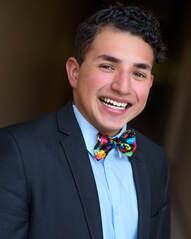 Carlos García León was born in Atlixco, Puebla, Mexico and had a passion for music early on. Through their experience over the years in various music organizations, they developed a passion for addressing cultural equity, decolonization, and social justice in the arts. “I have a personal mission to fight for diversity, inclusion, and cultural equity. It is what drives me in my work and my learning process on how to continue this mission.” Carlos identifies as a queer, non-binary, Latine, Mexican-Statesian who is currently the Individual Giving Manager for Cincinnati Opera. In this position, they are in charge of stewardship, cultivation, and engagement of donors and serving as the liaison to the Cincinnati Opera’s Guild. They were a part of the Artist Relief Fund, set to compensate contracted artists and artisans from the financial burden incurred by COVID cancellations by raising over $500,000 and starting the Virtual Opera Chats program designed to engage patrons with diverse artists and stories. Carlos is also a spoken word artist, having their written work published in local and national zines, and performing in local open mics. Carlos will be coaching WordPlay Cincy teen poets for the spring 2021 Louder Than a Bomb poetry slam as well as future spoken word workshops. Though new to the opera world and joining Cincinnati Opera a couple of months before COVID hit, Carlos has been taking in opera through digital streaming of performances. “Out of the ones I have gotten to see, my top favorite has been Opera Philadelphia's We Shall Not Be Moved. Getting to see an opera that touched on an important local story with a powerful message, genre-crossing music that was tremendously beautiful, and the way Opera Philadelphia handled the whole digital festival really made me fall in love with that production.” During the pandemic, he’s been learning about artists and checking out the work of companies nationwide, especially those who are providing musical experiences in non-traditional ways and working on diversity and social justice in their communities. “In a short list, I've been obsessed with Jamie Barton, Ailyn Pérez, Frederick Ballantine, John Holiday, Isabel Leonard, Karen Slack, Morris Robinson, Javier Camarena, just to name a few. As for companies, besides my own, I've been looking at the fantastic work Seattle Opera is doing, as well as San Diego Opera, Opera Philadelphia, and The American Opera Project.” In the fall of 2020, Carlos submitted a proposal to OPERA America for a Latinx panel discussion for Latinx Heritage Month. This led to OPERA America’s panel discussion, “Bringing Latinx Voices to the Opera Stage” that brought together a panel of artists and professionals from across the Latinx diaspora and among different positions within the opera field to talk about representation, storytelling, music, and culture. “It was such a joy to have this idea become a reality with an organization that has a platform to reach a broad audience and to scratch the surface on these conversations.” As Carlos looks towards the future, he is inspired by learning more about BIPOC artists and administrators in opera who have paved the way for others while working towards future with collaborations that might inspire others like them, queer and Latine, to be a part of the opera field. 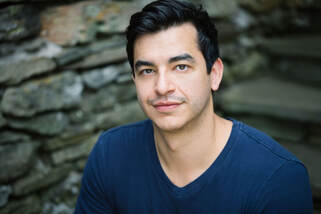 Schyler Vargas is a Mexican-American baritone who grew up in a very musical family. From a young age, Schyler’s mother made sure that he and his brothers participated in shows at their community theater and participated in their church’s youth choir. Taking a break from music, Schyler found his way back later in high school and quit football to sing in musicals. It wasn’t until he started his undergraduate studies though that opera came into his life. Originally pursuing a business degree, a voice teacher showed him his potential and new career path! Schyler has most recently performed with The Glimmerglass Festival as Marchese in La traviata and Frank in Show Boat, and covered Beaumarchais in Corgliano’s The Ghosts of Versailles with the Châteaux de Versailles Spectacles. He has also performed nationally at companies including Dayton Opera, Lyric Opera of Kansas City, and The Atlanta Opera. Prioritizing new works, he has worked with Cincinnati Opera’s Opera Fusion, workshopping new works including Rufus Wainwright’s Hadrian and Tobias Picker’s Awakenings, as well as Nicholas Benavides’ Gilberto. For Schyler, it’s important that new operas are created to bring new composers and librettists to light and to share diverse, powerful stories through music. “I strive to be an honest and versatile performer and have accepted many challenging tasks to help tell these stories whether it be incorporating serious dance, fight choreography, spoken dialogue, vocal percussion or playing the harmonica on stage.” He dreams of a project where he will be able to originate a character in a bilingual opera that tells a story about Latinx experiences in the US. “Extra points if that opera included dance!” The power of music is a main driver in Schyler's work. He is inspired by artists who pour themselves into their singing to bring the text and music to life. He has also seen first hand how music can spark the curiosity of young people through a performance for students: ”In my second year pursuing my operatic career, I had the opportunity to sing for a regional company in Colorado playing Samuel and covering the Pirate King in Gilbert and Sullivan's Pirates of Penzance. As a cover, I was able to perform the Pirate King for children in the afternoons which included a Q&A after the show. After getting to perform for them and interact with them after the show, I saw the excitement and awe on their faces. My proudest accomplishment was receiving an email from the company including a statement from one of the teachers saying that her class of children decided to start an opera club at their school where they would listen to music from operas and guess what language they were singing.” Learn more about Schyler and connect with him at https://www.facebook.com/schylervargasbaritone.  "Wow! I am so grateful that I kept moving forward." is a frequent thought for soprano Jonelle Sills when she’s making music with her colleagues. She loved singing as a child and it was her experience in a children’s choir that sparked her interest in classical music. This interest led Jonelle to pursue singing at York University in Toronto, Ontario, and then at The Glenn Gould School. For her it can sometimes feel unreal, but she continues to work on her craft to share new and traditional repertoire with audiences. Having been praised for her “... warm, full, elastic tone” (Schmopera, Greg Finney), Jonelle was recently named as one of CBC Music’s classical “30 under 30” performers for 2020. Looking to share not only a “beautiful” voice, Jonelle seeks to share her heart in her artistry. “Opera is something that I continue to fight for because I believe at its core, it can be revolutionary.” As she moves forward in her career, she is not only working to meet the musical and technical demands of the art form, but to push against traditions that have limited opera from motivating its audiences to change and grow. ”My hope is that people will love their neighbours more, think a little more critically or maybe even smile more because they went to an opera.” 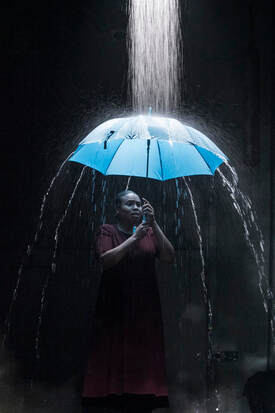 "Silent Night" "Silent Night" In the fall of 2019, Jonelle made her role debut as Mimì in Puccini’s La Bohème on tour with Against The Grain Theatre through dive bars from Banff, Alberta to Toronto, Ontario. Directly following the tour, she sang PriaSoprano in A Million Billion Pieces by David James Brock, with music by Gareth Williams and directed by Philip Akin with Toronto’s Young People’s Theatre. Jonelle won a 2019 Dora award for “Outstanding performance of an Ensemble” in Vivier’s Kopernikus also with Against the Grain Theatre. This past summer Jonelle was a Resident Artist with Against the Grain Theatre at the Banff Centre’s “Opera in the 21st Century” program. During that residency she premiered the role of Esther in composer Paola Prestini and librettist Royce Vavreck’s Silent Light, which was directed and designed by Thaddeus Strassberger. Though COVID-19 continues to limit live performance opportunities, Jonelle is looking forward to joining the Yulanda M. Faris Young Artists Program with Vancouver Opera in the new year and to performing Barber's Knoxville: Summer of 1915 and narrating Carlos Simon's Portrait of a Queen in the near future. She will also be making her debut with the National Arts Centre Orchestra in Ottawa, Ontario. Until then, she continues to stay inspired in her work giving special credit to Black Women in Opera’s Instagram account founded by Renee Ombaba. “This instagram page allowed me to know that I wasn't alone and that there were SO MANY black women who have done and are doing amazing things in opera.” Keep up with Jonelle’s journey at https://jonellesills.com. 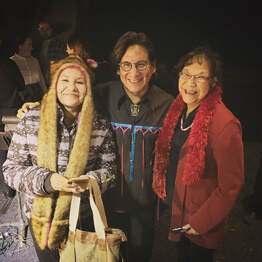 Engaging with First Native audience members following a performance of "Missing" in British Columbia. Engaging with First Native audience members following a performance of "Missing" in British Columbia. Conductor and pianist Timothy Long discovered his love of opera 28 years ago at the Aspen Music Festival. Growing up in Oklahoma playing piano and then the violin, among many other instruments, it was at Aspen that he fell in love with the music [of opera] and the energy of the people. Currently the Director of Opera at Eastman School of Music, Tim’s musical career has taken him around the world. After working on Thomas Adès’s , Powder Her Face, Tim was named by Robert Spano to be his assistant conductor at the Brooklyn Philharmonic. He was subsequently named an associate conductor at the New York City Opera which led to engagements with companies such as Boston Lyric Opera, Wolf Trap Opera, Opera Colorado, Utah Opera, Tulsa Opera, Opera Theatre of Saint Louis, The Juilliard School, Yale Opera, the Oklahoma City Philharmonic, and the Oregon Bach Festival. Tim has also performed as a pianist and harpsichordist at venues internationally. Recently, he conducted the world premiere and tour of Missing which he credits as one of his dream projects. Missing by Marie Clements (libretto) and Brian Current (music) is an opera about the 3,000 missing Indigenous women in Canada. Tim conducted the opera at Pacific Opera Victoria, the Regina Symphony Orchestra, and the Prince George Symphony Orchestra. He hopes to be able to bring this opera to a broader audience in the US and worldwide. As an artist of Muscogee Creek (Thlopthlocco Tribal Town) and Choctaw descent working in opera, he wants people to know that “it is possible for a Native American person to survive this world.” Keeping busy during the pandemic, Tim is working on a live-streamed talk show and podcast called Unequal Temperament about race and music. Adding to a growing catalog of recordings, he’s working on a recording featuring music of Mason Bates, Greg Spears, and Missy Mazzoli. Stay connected to Tim’s upcoming work at https://timothylongmusic.com/. 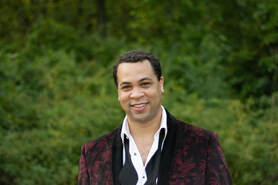 “My goal in every performance, from a street corner to a vaunted stage, is to change someone's mind about what ‘opera’ means.” Baritone Samuel James Dewese is forging a path as an evocative artist in the US and beyond. His love of changing perceptions and pushing limits has led him to successful collaborations in creating and performing new works, specifically seeking creators who live on the margins, outside of the expected canon. A graduate of University of Illinois and the Royal College of Music, London, it was Samuel’s undergraduate teacher who pushed him forward in his training. When he was ready to change his major after a difficult freshman year performance, his teacher did not allow him to quit and Samuel was able to find the enjoyment in putting in the hard work to rebound. That support and encouragement convinced Samuel to continue his studies and find joy in singing for an audience. 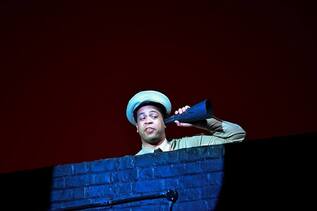 Samuel’s most recent engagements include Marcello in La Boheme, Father in Hansel and Gretel, and Astrophel in The Arcadians. His oratorio and concert performances include Portsmouth Festival Orchestra, Highgate Choral Society, and Illinois Wind Symphony, among others. Samuel’s performances in new works include the title role in the world premiere of John Henry (McCarthy) with Tête à Tête in London and The Perfect Opera (Davis) with Virtually Opera at the Edinburgh International Fringe. In competition, Samuel has twice been named a district winner in the Metropolitan Opera National Council Auditions (St. Louis), captured second prize in the James Toland International Competition, and was a grand finalist in the Hariclea Darclée Competition. During the pandemic, Samuel began a performance project, On Your Street, which brings him and a bluetooth speaker to front porches, back decks, and street corners in and around Chicago. He’s looking forward to collaborating with additional singers in Spring 2021 to responsibly perform small ensembles at a safe distance from each other and our audiences. He is also currently developing a lecture recital series in collaboration with an art gallery in Chicago to choose (and premiere) vocal works inspired by art in the performance space. While he’s dreaming of future projects, one of Samuel’s dreams is to “commission and present a new song cycle about one of my heroes, Barack Obama, to the man himself.”
Stay connected with Samuel at www.samueljamesdewese.com and learn more about his work. 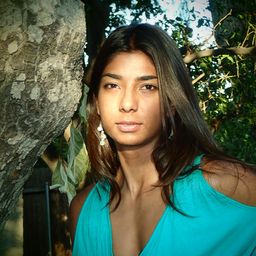 Composer Juhi Bansal brings together themes celebrating musical and cultural diversity by drawing upon her traditions as an Indian composer raised in Hong Kong. Her work draws from music including Hindustani, progressive metal, and choral traditions that tells stories about women whose stories are rarely told. “Two of the themes I always love to write about are strong women and celebration of different cultures.” Her work has been performed worldwide including commissions from LA Opera, Los Angeles Philharmonic Association, Beth Morrison Projects, Heidi Duckler Dance Theatre, AIDS Quilt Songbook 20th Anniversary project and more. Celebrating strong women is a common theme in Juhi’s work. “There are so many unknown women from different countries and cultures who have done incredible things, but are hardly spoken about.” Building on that interest, her latest work for Prototype’s 2021 season is inspired by the story of The Bangladesh Surf Girls and Boys. “I found the stories of the young girls themselves incredibly powerful, and have really enjoyed bringing in elements from my Indian childhood and culture along with more traditional operatic elements to tell part of their story.” Drawing inspiration from the young surfers, the work is about making choices, the conflict of cultures, and finding courage within yourself to create change. Early this year Juhi wrote a new piece for LA Opera’s Eurydice Found Festival. We Look to the Stars, is a reflection on human experiences through the stories of various cultures. The performance of the cantata brought together youth and adult community performers, alongside professionals, in a production that Juhi lists among her proudest accomplishments. Working together with multiple performers and organizations is part of the collaborative process that Juhi truly enjoys. “As long as we’re all excited about the story we’re telling and invested in making it happen as effectively as we can - both in sharing creative ideas and adapting to logistical constraints - I feel like that makes for satisfying collaboration.” Not only a composer, Juhi is also a conductor having earned fellowships by the Douglas Moore Fund for American Opera, the Atlantic Music Center, Seasons Music Festival, Oregon Bach Festival Composer’s Symposium, and the Pacific Music Festival. She is currently on the music faculties of the Hartt School at the University of Hartford and Pasadena City College. Connect with Juhi and learn more about her work on her website, https://juhibansal.com/. 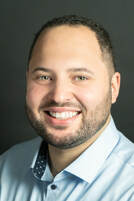 Tennessee native, Camron Gray, began his vocal studies in his undergrad program 10 years ago which led him to participate in opera workshops and young artists programs since then. Last summer he attended the Glimmerglass Festival and is currently completing his Artist’s Diploma at the University of Michigan. Seeking to move people with honest portrayals of characters, Camron is proud to have performed in Blue at the Glimmerglass Festival. “That work merged my passion for social activism with my love for music and truthful storytelling.” Though his passion for music and the human voice is what has brought Camron to this point in his career, he looks forward to using his platform to help move someone and inspire them through his music-making. His performance work includes Tom Snout in Benjamin Britten’s A Midsummer Night’s Dream (2017), Larry Renault in William Bolcom’s latest opera Dinner at Eight, as well as the authoritative, fully-revised version of George Gershwin’s Porgy and Bess, as Robbins and Crab Man in February 2018 in conjunction with the University Musical Society (UMS). He performed as part of the Cincinnati Opera chorus in La Traviata (Verdi), The Flying Dutchman (Wagner), and Another Brick in the Wall (Bilodeau). Camron looks forward to future performances of Blue and to performing some of his dream roles in La Boheme, Faust, and La Traviata. As well as taking part in many of the new works being created. Keep an eye on Camron’s upcoming performances at https://www.camrongraytenor.com. 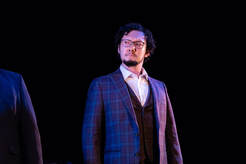 “The first opera I saw was Aïda at Hawaii Opera Theatre and the drama and emotions that could be conveyed through music stuck with me.” Robert Ellsworth Feng began his operatic career in the chorus of Turandot which led to a life-long passion. “I knew I had a story to tell and a voice to tell it with.” As a singer and librettist, Robert sees his role as giving back to the world by offering his truth and story. His performance work has included traditional repertoire including Don Giovanni (Il Commendatore) with Kor Productions, La sonnambula (Count Rodolfo) and Così fan tutte (Don Alfonso) with Opera Alchemy. And he has also premiered new works including Tony Small’s operetta Qadar, Nick Peros’ monodrama Lamentation of Ruin, and with Christman Opera in their Voices Rising Voices series. 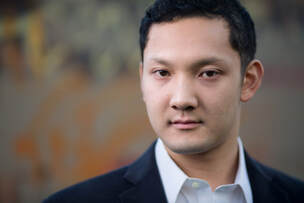 Since the COVID-19 outbreak, Robert has been active through Social Distance Opera's production of Street Scene as Henry Davis and was an Emerging Artist with Seagle Music Colony. He has also been a featured artist for Tony Small's Virtual Masterclass series for the Boys & Girls Club of Greater Washington. A highlight of his professional career, Robert has enjoyed participating in Small’s Project 31, an education series to introduce young kids to opera. A lover of the Horror genre, his dream opera is a new opera based on a horror story. “The Magnus Archives is a recent favorite of mine for horror.” Until then, his upcoming projects include Don Giovanni (Conmendatore) with Kor Productions, Mikado (Ko-Ko) with Hawaii Opera Theatre, Voice Acting with Circle Round WBUR, and continuing Tony Small’s Project 31. Stay connected to Robert’s upcoming performances and explore some of his written work at https://www.robertfeng.com.  David Radamés Toro's career as a stage director really began at the age of 10 when he would set epic battles, dramatic scenes, and grand parades with his X-men figures to classical music or movie soundtracks like Star Wars or Citizen Kane. It wasn’t until he was in graduate school studying voice that he formalized his training at Ohio State, where he trained in physical theater and Meisner Technique. Since then his work has been seen at companies like Minnesota Opera, the Wexford Opera Festival, Washington National Opera, Cincinnati Opera, Central City Opera, Opera Saratoga, and Opera Neo. David applies his background in physical theater to direct, especially utilizing his skills as a mime. “The idea of mime is to concentrate on an idea to create clarity for the audience, which I believe invites the audience to follow the emotional journey of the characters more honestly without relying on emotional manipulation.” He also draws inspiration from silent film (Charlie Chaplin and German silent film), his theater mentors (Jeanine Thompson at Ohio State, Greg Goldsten - Mime, Peter Kozma at Opera Neo) and the movies of Guillermo DelToro, especially Hellboy 2 and Pan's Labyrinth. 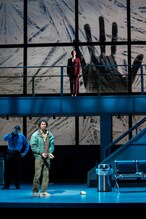 "Flight" at Minnesota Opera "Flight" at Minnesota Opera A proud Latin artist, David dreams of developing a new work that explore his Mexican and Puerto Rican heritage. He had the opportunity to feel the impact of Latinx representation in opera as an assistant director, working with Leonard Foglia, on El Pasado Nunca Se Termina at Fort Worth Opera. “I was moved everyday, not only by the story, but Latinx representation on stage and in the music from various generations of Latinx artists. I had never felt more proud to be a Latino in Opera.” David works with a variety of musical repertoire and has an affinity for baroque and 20th/21st century works, listing Flight at Minnesota Opera among his proudest achievements. “I like to work with collaborators who are not afraid to contribute ideas outside of their field. A conductor who may have a great spin on a character or a lighting designer who feels a particular way about a scene. I truly enjoy collaborating and sharing ideas.” See David’s work with Opera Neo and connect with him at https://www.dtorodirects.com/. |


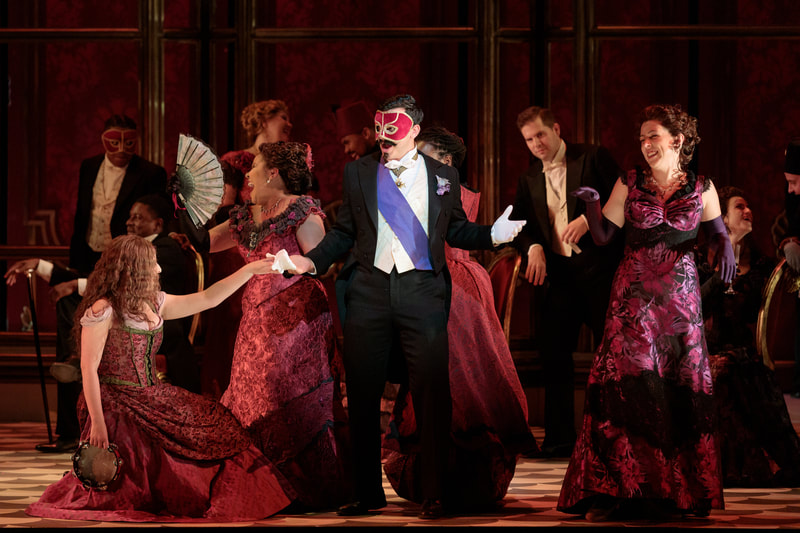
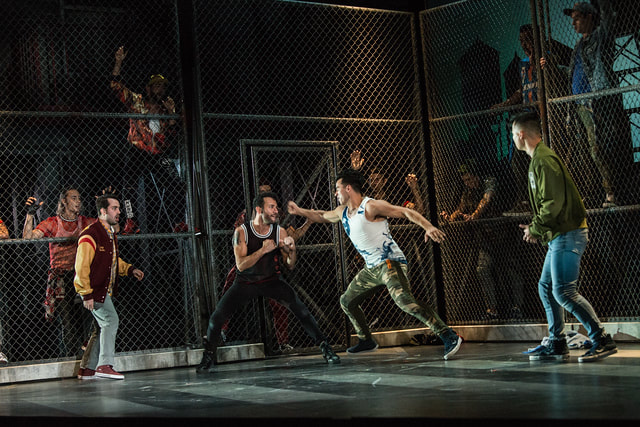
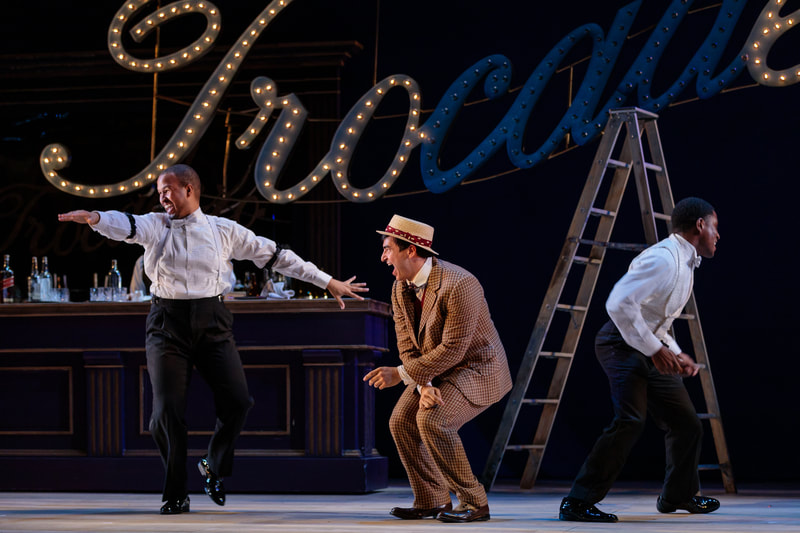
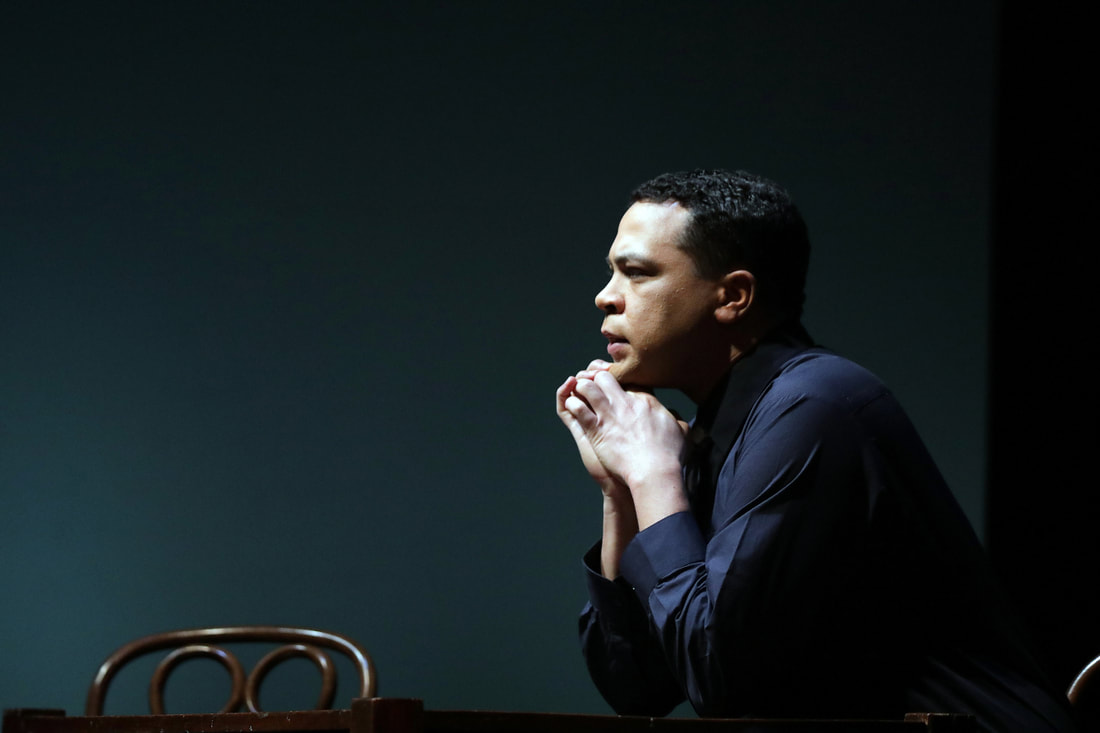
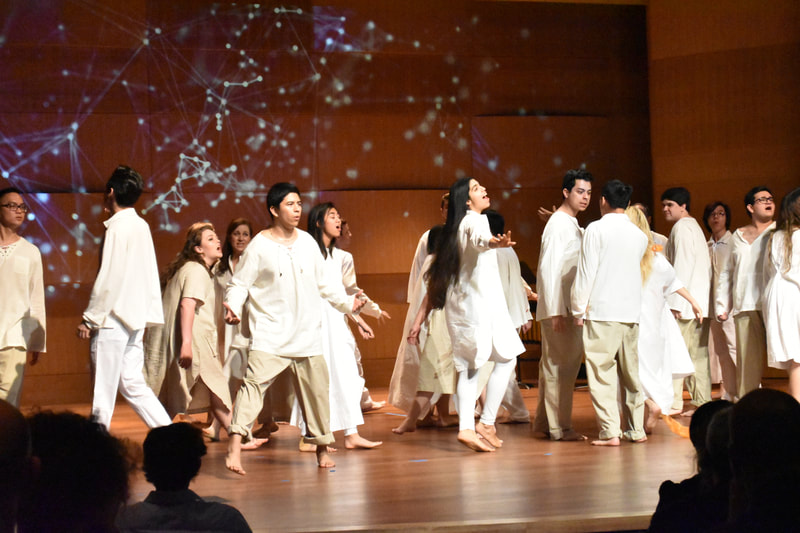
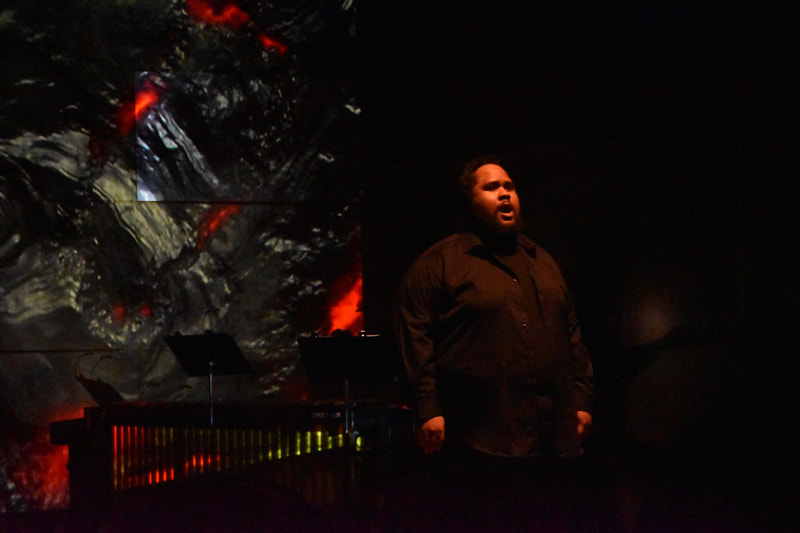
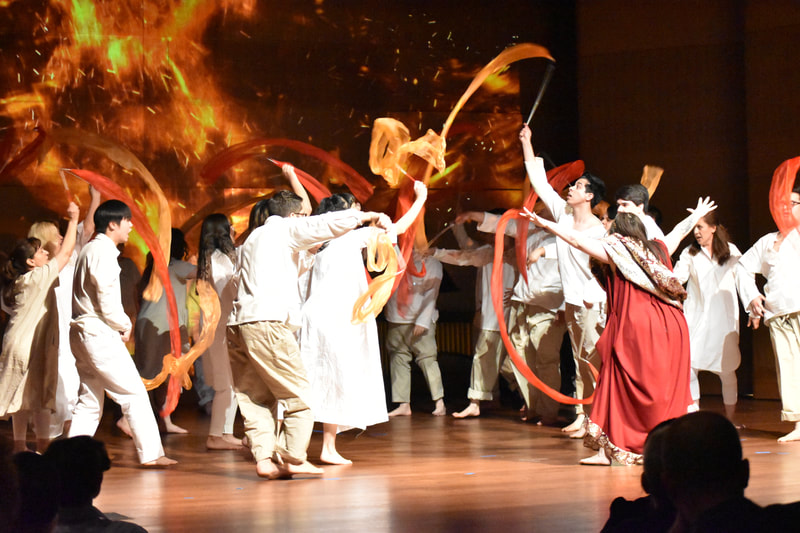
 RSS Feed
RSS Feed